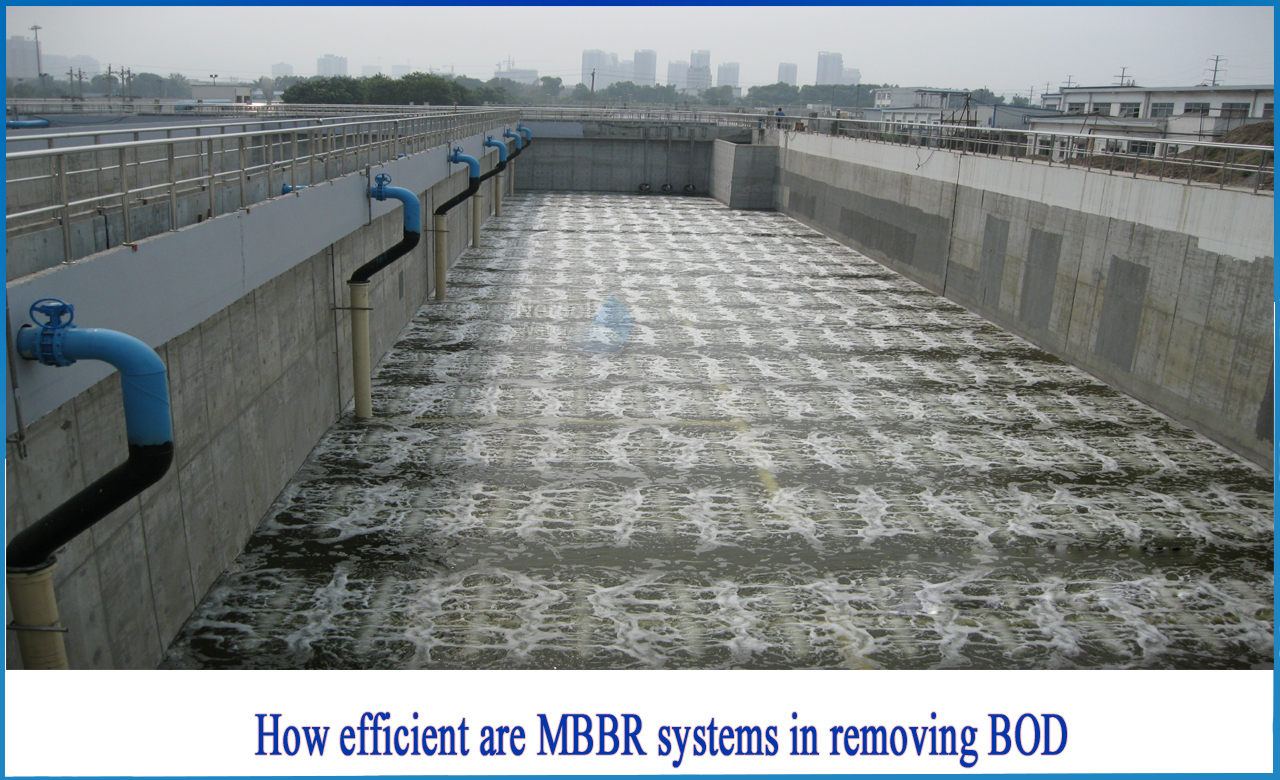Introduction
For the treatment of wastewater, MBBR technology has gained popularity over the last two decades due to its simplicity, resilience, adaptability, and compactness. The method outperforms the surface aeration system, demonstrating great potential for lowering contamination and pollution levels.
What is MBBR?
The Moving Bed Biofilm Reactor (MBBR) is a cutting-edge fixed-film (or attached growth) biological method for BOD removal, nitrification, and denitrification in municipal and industrial wastewater treatment. The moving bed biofilm reactor (MBBR) is a state-of-the-art wastewater treatment system that combines the advantages of biofilm and activated sludge processes to provide extremely effective wastewater treatment.
How MBBR systems work?
The moving bed biofilm process is a modified form of the combination of a biofilter and an activated sludge process that takes the best of both and leaves out the worst. The biomass is grown on biocarriers, which are free-moving carriers that are inserted within the reactor and sieved at the reactor's exit. The mobility of biofilm carriers is triggered by the agitation of air bubbles.
How efficient are MBBR systems in removing BOD?
This modular treatment system efficiently removes BOD, nitrogen, and phosphorus while allowing for excellent solids separation. Because of its appealing approach to pollutant removal from wastewater, which has been proven to be beneficial in terms of both financial and environmental perspectives, the usage of biofilm systems in wastewater treatment is fast increasing. It employs simple floating medium as carriers for biofilm attachment growth.
Pharmaceutical wastewater, pulp and paper effluent, laundry wastewater, and dairy wastewater have all been successfully treated using MBBR technology. The technology is also useful in aquaculture, drinking water denitrification, and other surface water operations. MBBR has been proven to be an enhanced treatment technology for industrial and municipal wastewater in several studies. When compared to an activated sludge process for tannery effluent, the MBBR system has a COD removal effectiveness of 90%. When it comes to textile wastewater, up to 98.5 percent efficiency can be reached.
When compared to suspended growth systems, there are several advantages to using biofilm systems in wastewater treatment, including flexible procedures, smaller space requirements, lower hydraulic retention time, increased environmental resilience, higher biomass retaining period, high active biomass concentration, and low sludge production.
Industrial Applications of MBBR
Let's check at few industries that could benefit from an MBBR to properly treat the wastewater they generate:
Textile industry: Wastewater comprises of dyes, thickeners, wetting agents, and other pollutants that must be removed before water may be reused in the textile industry. MBBR has been shown to be a viable solution for biological treatment of textile wastewater in studies.
Manufacturing of pesticides, plastics, and other chemicals: Manufacturers of pesticides, plastics, and other chemicals must cleanse their wastewater before reusing or discarding it because it includes dangerous organic compounds. MBBR can effectively lower the BOD of influent water to the point where it is regarded safe to drink.
Food and beverage industry: Wastewater is generally non-toxic, however typically contains significant levels of suspended particles and BOD. MBBR is a good option for eliminating organic materials and reducing BOD levels.
Municipal sewage plants: For certain firms, treating wastewater isn't just a side job; it's their primary responsibility. This is true of municipal sewage plants that deal with water containing substantial volumes of organic matter that must be removed before the water can be reintroduced into the system. MBBR systems can be an important feature of a comprehensive wastewater treatment system in sewage plants.
Conclusion
A well-designed MBBR system can help a company save space, money, and time while providing highly effective water treatment. Contact Netsol Water to learn more about our biological treatment systems, other wastewater equipment’s, or to discuss your specific water treatment requirements.
Place a call on +91-9650608473;
Or, write us at enquiry@netsolwater.com



